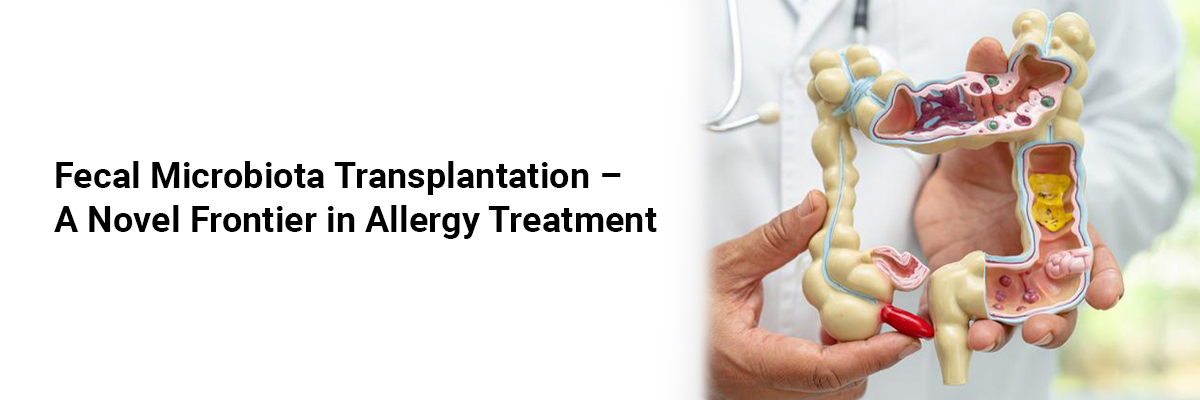
Fecal Microbiota Transplantation – A Novel Frontier in Allergy Treatment
Allergic diseases are becoming increasingly prevalent worldwide, posing significant challenges for effective management. A recent review by Sutanto et al., published in The American Journal of Medicine, explores an innovative treatment approach targeting the gut microbiome: fecal microbiota transplantation (FMT).1 This emerging therapy offers new hope for patients with allergies that are difficult to control through conventional methods.
Allergies arise from immune system dysregulation, particularly an exaggerated T-helper 2 (Th2) cell response. This hyperactivity leads to increased production of immunoglobulin E (IgE) and inflammation, manifesting as symptoms in conditions like asthma, allergic rhinitis, and atopic dermatitis. Growing evidence suggests that the gut microbiome plays a fundamental role in shaping these immune responses. In allergic individuals, gut microbial communities often show reduced diversity and an imbalance favoring pro-inflammatory bacteria—a condition known as dysbiosis.
The review highlights the importance of gut-derived metabolites such as short-chain fatty acids (SCFAs), particularly butyrate, which enhance regulatory T cell (Treg) function and help maintain immune tolerance. A balanced gut microbiome, termed eubiosis, supports immune homeostasis, while dysbiosis may impair mucosal barriers and promote allergic inflammation through Th2 and Th17 pathways.
FMT involves transferring fecal material from a healthy donor to the gastrointestinal tract of a patient, aiming to restore microbial diversity and function. While FMT is an established treatment for recurrent Clostridioides difficile infections, its application in allergy treatment is still investigational. Clinical and animal studies have demonstrated that FMT can increase Treg populations and reduce allergic symptoms. For instance, improvements have been reported in allergic colitis, chronic urticaria, and allergic asthma following FMT administration.
Despite these promising findings, several challenges must be addressed before FMT can be widely adopted in allergy management. Donor selection, variability in microbiota compatibility, optimal delivery methods, and long-term safety are critical areas requiring further research. Standardization of FMT protocols, including rigorous donor screening and preparation techniques, is essential to ensure consistent outcomes.
In conclusion, this review positions the gut microbiome as a crucial factor in allergy pathogenesis and identifies FMT as a promising microbiome-targeted intervention. As research progresses, FMT and similar therapies could transform allergy treatment paradigms, offering new options for patients who do not respond to current therapies.
Source: Sutanto H, Elisa E, Rachma B, Fetarayani D. Gut microbiome modulation in allergy treatment: the role of fecal microbiota transplantation. Am J Med. 2025 Jan 22. DOI: 10.1016/j.amjmed.2025.01.005. Available on: https://www.amjmed.com/article/S0002-9343(25)00033-6/fulltext













Please login to comment on this article